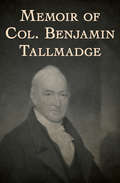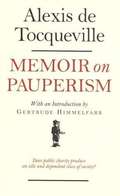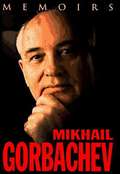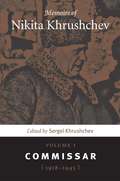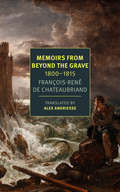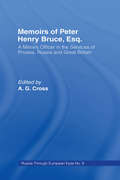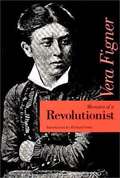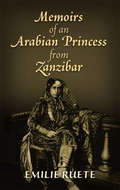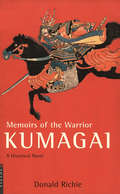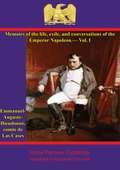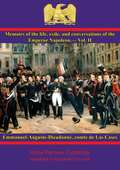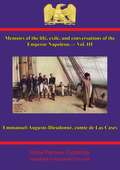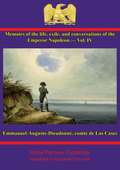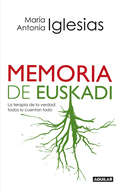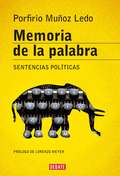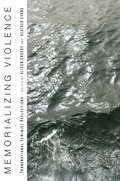- Table View
- List View
Memo to the President Elect: How We Can Restore America's Reputation and Leadership
by Madeleine AlbrightThe next president will face the daunting task of repairing America's core relationships and tarnished credibility after the damage caused during the past eight years. In Memo to the President, former secretary of state Madeleine Albright offers provocative ideas about how to confront the myriad challenges awaiting our newly elected commander-in-chief. Secretary Albright's advice is candid and seasoned with humor and stories from her years in office, blending lessons from the past with forward-looking suggestions about how to make full use of presidential power without repeating the excesses of the Bush administration and how to revive America's commitment to its founding ideals.
Memoir of Col. Benjamin Tallmadge: Prepared By Himself, At The Request Of His Children (classic Reprint)
by Col. Benjamin TallmadgeThe Revolutionary War colonel—and leader of the famed Culper Spy Ring—tells his story in this fascinating historical autobiography. When British troops defeated the Continental Army on Long Island, General George Washington was forced to abandon New York in order to save the revolution. The British established their headquarters in New York City—beginning an occupation that would last the length of the war. Priceless intelligence flowed through the city&’s harbor, and Washington wanted to claim it as his own. To Benjamin Tallmadge, a young officer of the Continental Army, the general assigned an impossible mission: Infiltrate New York, establish a spy network, and report everything the British know. Throughout the war, Tallmadge and his spies collected intelligence on troop movements, sneak attacks, and the treachery of Benedict Arnold. Nearly two and a half centuries later, the heroic exploits of the Culper Spy Ring have served as the inspiration for the acclaimed TV series Turn: Washington&’s Spies and the video game Assassin&’s Creed III. In this lively and engaging memoir, the days of revolution are remembered by a patriot who fought in the shadows—and helped redefine the nature of espionage.This ebook has been professionally proofread to ensure accuracy and readability on all devices.
Memoir on Pauperism
by Alexis De Tocqueville Seymour DrescherIn this neglected memoir, written just after the first volume of Democracy in America, Tocqueville seeks to understand why the impoverished countries of Europe in his time had the fewest paupers, while the most opulent nation England had the most.
Memoirs
by Brian MulroneyPolitics was always Brian Mulroney's real love. As an undergraduate in Nova Scotia he amazed his friends by getting Prime Minister Diefenbaker on the phone, and he rose fast in the Tory ranks in Quebec as a young Montreal lawyer. He tried for the leadership of the party in 1976, losing to Joe Clark, then returned to win a rematch in 1983. The next year, he ran the most successful election campaign in Canadian history, winning 211 seats, and taking office in September 1984. His first term in office was a stormy one, marked by the launch of the Meech Lake Accord and the Free Trade Agreement with the United States. In 1988, however, he was re-elected after a rollercoaster campaign, and his second term in office was just as controversial, featuring the Meech Lake and Charlottetown Accords -- still a source of bitter regret for him, as opportunities missed.This book falls into two main sections: first, his rise out of a working-class family in Baie-Comeau. Second, his immersion into the world of Ottawa politics, in opposition and then in power. The years in power are dealt with in fascinating detail, and we receive his candid accounts of backstage dealings with Trudeau, Clark, and other Canadian leaders and on the international scene with Reagan, Thatcher, Mitterrand, Kohl, Gorbachev, Mandela, Clinton, and many more. This big book has a huge cast of major players.Brian Mulroney is determined to make this the best prime minister's memoirs this country has ever seen, and a full-time researcher has been helping him for three years. This account of his career is colourful and forthright, and a number of opponents will be sorry that they caught his attention.The manuscript is full of personal touches and reflects the fact that he wrote it by hand, reading it aloud for rhythm and impact. Studded with entries from his private journal, this book -- by a son, brother, husband, and father -- is deeply personal, and includes some surprisingly frank admissions.The book establishes the scale of his achievements, and reveals him as a man of great charm. Memoirs will allow that little-known Brian Mulroney to engage directly with the reader. This book is full of surprises, as we fall under the spell of a great storyteller.From the Hardcover edition.
Memoirs
by Mikhail GorbachevIn these long-awaited memoirs, Mikhail Gorbachev looks back on a lifetime that mirrors the fate of the Russian people. From the persecution of his family under Stalin to his first political steps, to his extraordinary rise within the Communist Party, Gorbachev recounts the events that led to his own disillusionment, without which the eventual implosion of communism would not have taken place. He casts an equally sharp eye on the policies of both past communist governments and present-day reformers.
Memoirs (1925-1950)
by George F. KennanThe American diplomat's reflections of his years of government service provide insight into four decades of U.S. policy<P><P> Winner of the National Book Award<P> Pulitzer Prize Winner
Memoirs Of Nikita Khrushchev: Volume 1 Commissar (1918-1945)
by Sergei Khrushchev George ShriverNikita Khrushchev’s proclamation from the floor of the United Nations that "we will bury you" is one of the most chilling and memorable moments in the history of the Cold War, but from the Cuban Missile Crisis to his criticism of the Soviet ruling structure late in his career the motivation for Khrushchev’s actions wasn’t always clear. Many Americans regarded him as a monster, while in the USSR he was viewed at various times as either hero or traitor. But what was he really like, and what did he really think? Readers of Khrushchev’s memoirs will now be able to answer these questions for themselves (and will discover that what Khrushchev really said at the UN was "we will bury colonialism"). This is the first volume of three in the only complete and fully reliable version of the memoirs available in English. In this volume, Khrushchev recounts how he became politically active as a young worker in Ukraine, how he climbed the ladder of power under Stalin to occupy leading positions in Ukraine and then Moscow, and how as a military commissar he experienced the war against the Nazi invaders. He vividly portrays life in Stalin's inner circle and among the generals who commanded the Soviet armies. Khrushchev’s sincere reflections upon his own thoughts and feelings add to the value of this unique personal and historical document. Included among the Appendixes is Sergei Khrushchev’s account of how the memoirs were created and smuggled abroad during his father’s retirement.
Memoirs from Beyond the Grave: 1800-1815
by François-Réne ChateaubriandThe second part of an infamous memoir about life in the time of Napoleon by a rebellious literary celebrity. In 1800, François-René de Chateaubriand sailed from the cliffs of Dover to the headlands of Calais. He was thirty-one and had been living as a political refugee in England for most of a decade, at times in such extreme poverty that he subsisted on nothing but hot water and two-penny rolls. Over the next fifteen years, his life was utterly changed. He published Atala, René, and The Genius of Christianity to acclaim and epoch-making scandal. He strolled the streets of Jerusalem and mapped the ruins of Carthage. He served Napoleon in Rome, then resigned in protest after the Duc d&’Enghien&’s execution, putting his own life at tremendous risk.Memoirs from Beyond the Grave: 1800–1815—the second volume in Alex Andriesse&’s new and complete translation of this epic French classic—is a chronicle of triumphs and sorrows, narrating not only the author&’s life during a tumultuous period in European history but the &“parallel life&” of Napoleon. In these pages, Chateaubriand continues to paint his distinctive self-portrait, in which the whole history of France swirls around the sitter like a mist of dreams.
Memoirs of Constant - First Valet de Chambre to the Emperor. Vol I (Memoirs of Constant - First Valet de Chambre to the Emperor #4)
by Pickle Partners Publishing Elizabeth Gilbert Martin Imbert de Saint Martin Louis Constant WairyThis ebook is purpose built and is proof-read and re-type set from the original to provide an outstanding experience of reflowing text for an ebook reader. Louis Constant Wairy, mainly known as Constant through-out his life and as the author of his memoirs, was a man intimately connected to General Bonaparte and his wife Josephine Beauharnais, and later in their incarnation as Emperor and Empress of the French. Achieving the rank of first valet de chambre to the Emperor after the previous incumbent Louis Marchand, who also wrote a memoir of his experiences shadowing Napoleon, had abandoned him in 1814. A definite admirer of the Emperor, his place in the Emperor's household allowed access to the Great man and as he says himself; "From the departure of the First Consul for the campaign of Marengo, whither I attended him, until the departure from Fontainebleau, where I was obliged to leave the Emperor, I was absent from him only twice, the first time for three times twenty-four hours, the second for seven or eight days. Aside from these brief holidays, the last of which was necessary in order to restore my health, I quitted the Emperor no more than his shadow did." For this reason alone ensures that the memoirs which he wrote, and although not quite the "warts and all" portrait that Constant might have us believe it is of capital interest to the general reader and the Napoleonic enthuasiast. Text taken, whole and complete, from the 1907 edition published in New York by Century, Original 367 pages. Author - Louis Constant Wairy, known as Constant 02nd December 1778-1845 Foreword - Imbert de Saint-Amand. 1834-1900 Translator - Elizabeth Gilbert Martin ????-????
Memoirs of Constant - First Valet de Chambre to the Emperor. Vol II (Memoirs of Constant - First Valet de Chambre to the Emperor #2)
by Pickle Partners Publishing Elizabeth Gilbert Martin Imbert de Saint Martin Louis Constant WairyThis ebook is purpose built and is proof-read and re-type set from the original to provide an outstanding experience of reflowing text for an ebook reader. Louis Constant Wairy, mainly known as Constant through-out his life and as the author of his memoirs, was a man intimately connected to General Bonaparte and his wife Josephine Beauharnais, and later in their incarnation as Emperor and Empress of the French. Achieving the rank of first valet de chambre to the Emperor after the previous incumbent Louis Marchand, who also wrote a memoir of his experiences shadowing Napoleon, had abandoned him in 1814. A definite admirer of the Emperor, his place in the Emperor's household allowed access to the Great man and as he says himself; "From the departure of the First Consul for the campaign of Marengo, whither I attended him, until the departure from Fontainebleau, where I was obliged to leave the Emperor, I was absent from him only twice, the first time for three times twenty-four hours, the second for seven or eight days. Aside from these brief holidays, the last of which was necessary in order to restore my health, I quitted the Emperor no more than his shadow did." For this reason alone ensures that the memoirs which he wrote, and although not quite the "warts and all" portrait that Constant might have us believe it is of capital interest to the general reader and the Napoleonic enthuasiast. Text taken, whole and complete, from the 1907 edition published in New York by Century, Original 307 pages. Author - Louis Constant Wairy, known as Constant 02nd December 1778-1845 Foreword - Imbert de Saint-Amand. 1834-1900 Translator - Elizabeth Gilbert Martin ????-????
Memoirs of Constant - First Valet de Chambre to the Emperor. Vol III (Memoirs of Constant - First Valet de Chambre to the Emperor #3)
by Pickle Partners Publishing Elizabeth Gilbert Martin Imbert de Saint Martin Louis Constant WairyThis ebook is purpose built and is proof-read and re-type set from the original to provide an outstanding experience of reflowing text for an ebook reader. Louis Constant Wairy, mainly known as Constant through-out his life and as the author of his memoirs, was a man intimately connected to General Bonaparte and his wife Josephine Beauharnais, and later in their incarnation as Emperor and Empress of the French. Achieving the rank of first valet de chambre to the Emperor after the previous incumbent Louis Marchand, who also wrote a memoir of his experiences shadowing Napoleon, had abandoned him in 1814. A definite admirer of the Emperor, his place in the Emperor's household allowed access to the Great man and as he says himself; "From the departure of the First Consul for the campaign of Marengo, whither I attended him, until the departure from Fontainebleau, where I was obliged to leave the Emperor, I was absent from him only twice, the first time for three times twenty-four hours, the second for seven or eight days. Aside from these brief holidays, the last of which was necessary in order to restore my health, I quitted the Emperor no more than his shadow did." For this reason alone ensures that the memoirs which he wrote, and although not quite the "warts and all" portrait that Constant might have us believe it is of capital interest to the general reader and the Napoleonic enthuasiast. Text taken, whole and complete, from the 1907 edition published in New York by Century, Original 307 pages. Author - Louis Constant Wairy, known as Constant 02nd December 1778-1845 Foreword - Imbert de Saint-Amand. 1834-1900 Translator - Elizabeth Gilbert Martin ????-????
Memoirs of Peter Henry Bruce, Esq., a Military Officer in the Services of Prussia, Russia & Great Britain, Containing an Account of His Travels in Germany, Russia, Tartary, Turkey, the West Indies Etc: As Also Several Very Interesting Private Anecdotes of the Czar, Peter I of Russia
by Peter Henry BruceFirst Published in 1970. Routledge is an imprint of Taylor & Francis, an informa company.
Memoirs of a Revolutionist
by Richard Stites Vera FignerBorn into the comforts of the Russian aristocracy in 1852, Vera Figner as a child harbored the fairy-tale dream of one day becoming tsarina. By the age of thirty-two, however, Figner had become one of Russia's most vocal revolutionaries, a terrorist and member of the Executive Committee of the People's Will party, and a prisoner sentenced for life for her involvement in the assassination of Alexander II. In this classic memoir, Figner recounts her journey from aristocrat to revolutionary, candidly relating the experiences that shaped her ideas and provoked her to political action and violence. As she reflects on her own lifelong commitment to improving the lives of ordinary Russians, she reveals much about the concept, structure, and leadership behind the radical movement in late nineteenth-century Russia. In his incisive introduction to this edition, Richard Stites discusses the importance of the memoir as a personal testimony and provides background for understanding a courageous woman's role in the struggle for political change.
Memoirs of an Arabian Princess from Zanzibar
by Emily Ruete Sayyida Prin. of ZanzibarReturn to an era when Zanzibar was ruled by sultans, and enter a vanished world of harems, slave trading, and court intrigues. In this insider's story, a sultan's daughter who fled her gilded cage offers a compelling look at nineteenth-century Arabic and African royal life. After years of exile in Europe, the former princess wrote this fascinating memoir as a legacy for her children and a warm reminiscence of her island home.Born Salamah bint Said, Princess of Zanzibar, in 1844, author Emily Ruete grew up in a harem with scores of siblings. The royal family maintained its fabulous wealth and luxury with a robust traffic in ivory, spices, and human bondage. Ruete ventures beyond the palace, into the city and plantations where European traders, missionaries, and colonists exercised a growing influence. After her dramatic elopement with a German trader, Ruete attained the perspective to form a comparison of the lives of women in Muslim society with those of their European contemporaries. Originally published in 1886, this remarkable autobiography will captivate readers interested in Zanzibar and Eastern Africa as well as students of Arabic, Islam, and women's studies.
Memoirs of the Warrior Kumagai
by Donald Richie"A tour de force combining a commanding mastery of historical fact and detail, a comprehensive understanding of the human spirit, and a poetic quality of expression that transforms the hearts of all those it touches." -The Japan Foundation NewsletterKumagai Naozane was a Japanese warrior famous for having taken the head of the young and handsome samurai Atsumori. This episode has become one of the best-known and best-loved stories in the Japanese historical classic, The Heiké Story (Heike Monogatari). This book is a fictionalized version of Kumagai's own attempt to come to terms with his past-that real past which is his and that other past which he hears the monks inventing as they compose the text which will eventually become The Heiké Story.As the warrior remembers his past and compares it to its fictional parallel, he evokes the wonders of the city of Heiankyo (Kyoto); the wars which raised the Taira (Heike) clan to power and later reduced it to ruin at the hands of the Genji clan; the battles at the Uji River; life in the imperial court of the retired emperor Go-Shirakawa; and the celebrated final Taira battle-the naval encounter at Dannoura, where the infant emperor Antoku was delivered to the depths of the sea. Among the many pleasures of this brilliantly colored chronicle is how the common humanity of this honest, hopeless man transcends his time and milieu to speak to us, here and now.
Memoirs of the life, exile, and conversations of the Emperor Napoleon, by the Count de Las Cases - Vol. I (Memoirs of the life, exile, and conversations of the Emperor Napoleon, by the Count de Las Cases #1)
by Comte Emmanuel-Auguste-Dieudonné de Las CasesBefore the shattering of the Napoleonic empire in 1815, Count Las Cases had served loyally for many years in the council of state. However, his most important service was to come after he followed his Emperor into exile on St. Helena. During his time with Napoleon on the "Rock in the Atlantic", he was to write down all that he heard from the Emperor's mouth, as clear a stream of his thoughts and reminiscences as were ever recorded. He was to eventually publish these entries as the "Memoirs of the life...", also known as the Mémorial de St. Hélène. They stand as a classic not just of the history of Napoleon's times, but also of the history of the first year of his banishment.Ranging from his earliest days in Corsica to the ranging battlefields of his career, Napoleon speaks through these pages as in no other of the sources left to us today. Essential reading and the birth of the Napoleonic legend. Author -- Las Cases, Emmanuel-Auguste-Dieudonné, comte de, 1766-1842.Text taken, whole and complete, from the edition published in 1855, New York, by Red Field.Original Page Count - 400 pages.Illustrations -- 4.
Memoirs of the life, exile, and conversations of the Emperor Napoleon, by the Count de Las Cases - Vol. II (Memoirs of the life, exile, and conversations of the Emperor Napoleon, by the Count de Las Cases #2)
by Comte Emmanuel-Auguste-Dieudonné de Las CasesBefore the shattering of the Napoleonic empire in 1815, Count Las Cases had served loyally for many years in the council of state. However, his most important service was to come after he followed his Emperor into exile on St. Helena. During his time with Napoleon on the "Rock in the Atlantic", he was to write down all that he heard from the Emperor's mouth, as clear a stream of his thoughts and reminiscences as were ever recorded. He was to eventually publish these entries as the "Memoirs of the life...", also known as the Mémorial de St. Hélène. They stand as a classic not just of the history of Napoleon's times, but also of the history of the first year of his banishment.Ranging from his earliest days in Corsica to the ranging battlefields of his career, Napoleon speaks through these pages as in no other of the sources left to us today. Essential reading and the birth of the Napoleonic legend.Author -- Las Cases, Emmanuel-Auguste-Dieudonné, comte de, 1766-1842.Text taken, whole and complete, from the edition published in 1855, New York, by Red Field.Original Page Count - 400 pages.Illustrations -- 4.
Memoirs of the life, exile, and conversations of the Emperor Napoleon, by the Count de Las Cases - Vol. III (Memoirs of the life, exile, and conversations of the Emperor Napoleon, by the Count de Las Cases #3)
by Comte Emmanuel-Auguste-Dieudonné de Las CasesBefore the shattering of the Napoleonic empire in 1815, Count Las Cases had served loyally for many years in the council of state. However, his most important service was to come after he followed his Emperor into exile on St. Helena. During his time with Napoleon on the "Rock in the Atlantic", he was to write down all that he heard from the Emperor's mouth, as clear a stream of his thoughts and reminiscences as were ever recorded. He was to eventually publish these entries as the "Memoirs of the life...", also known as the Mémorial de St. Hélène. They stand as a classic not just of the history of Napoleon's times, but also of the history of the first year of his banishment.Ranging from his earliest days in Corsica to the ranging battlefields of his career, Napoleon speaks through these pages as in no other of the sources left to us today. Essential reading and the birth of the Napoleonic legend.Author -- Las Cases, Emmanuel-Auguste-Dieudonné, comte de, 1766-1842.Text taken, whole and complete, from the edition published in 1855, New York, by Red Field.Original Page Count - 400 pages.Illustrations -- 4.
Memoirs of the life, exile, and conversations of the Emperor Napoleon, by the Count de Las Cases - Vol. IV (Memoirs of the life, exile, and conversations of the Emperor Napoleon, by the Count de Las Cases #4)
by Comte Emmanuel-Auguste-Dieudonné de Las CasesBefore the shattering of the Napoleonic empire in 1815, Count Las Cases had served loyally for many years in the council of state. However, his most important service was to come after he followed his Emperor into exile on St. Helena. During his time with Napoleon on the "Rock in the Atlantic", he was to write down all that he heard from the Emperor's mouth, as clear a stream of his thoughts and reminiscences as were ever recorded. He was to eventually publish these entries as the "Memoirs of the life...", also known as the Mémorial de St. Hélène. They stand as a classic not just of the history of Napoleon's times, but also of the history of the first year of his banishment.Ranging from his earliest days in Corsica to the ranging battlefields of his career, Napoleon speaks through these pages as in no other of the sources left to us today. Essential reading and the birth of the Napoleonic legend.Author -- Las Cases, Emmanuel-Auguste-Dieudonné, comte de, 1766-1842.Text taken, whole and complete, from the edition published in 1855, New York, by Red Field.Original Page Count - 412 pages.Illustrations -- 4.
Memoria de Euskadi: La terapia de la verdad: todos lo cuentan todo
by María Antonia IglesiasUn libro riguroso y sincero, con testimonios imprescindibles para conocer la realidad política y social de los últimos treinta años de historia de Euskadi. La recuperación de la memoria de un pueblo es un ejercicio de búsqueda que coloca a los individuos ante su verdadera naturaleza, en este caso ante una realidad que golpea y hiere. María Antonia Iglesias desde el compromiso de dar voz a todos, desde el interés por la opinión del otro, se acerca a Euskadi, territorio demonizado, y recompone treinta años de su historia, mientras armoniza las diferentes voces y silencios y compone un relato coral que nos devuelve la memoria inédita de los vascos en el que ninguna voz se puede desentender de las otras, porque todas se duelen de las mismas heridas. Las treinta y dos personalidades entrevistadas han aceptado el reto y han renunciado a la comodidad de un discurso políticamente correcto. Todos han aceptado el desafío de tumbarse en el diván del psiquiatra y de aceptar la terapia de la verdad, tan peligrosa e imprevisible en muchas ocasiones. Todos cuentan todo, hablan de todo -la disidencia en el mundo abertzale, la última negociación con ETA-, se acercan con pasión a la naturaleza y a la condición de los vascos... Y en paralelo a la política, que vertebra Memoria de Euskadi, crece una segunda espina dorsal que recompone y desnuda las raíces del alma vasca.
Memoria de la palabra: Sentencias Políticas
by Porfirio Muñoz LedoUn compendio de frases, pensamientos y reflexiones tomadas de entrevistas, artículos periodísticos, discursos y libros publicados por el autor. Memoria de la palabra es un libro peculiar. En sus páginas el lector encontrará una síntesis de temas del pensamiento político y del mundo contemporáneo. El doctor Lorenzo Meyer destaca en el prólogo que el libro integra, a través de frases y pensamientos breves, "la quintaesencia de las ideas" que Porfirio Muñoz Ledo ha expresado sobre la vida política, México y el mundo a lo largo de los años en discursos, declaraciones públicas y escritos: "Se trata, en realidad, de una larga serie de propuestas de definiciones sobre los grandes temas del poder: el concepto mismo de política y los de ética, soberanía, república, democracia, educación o cultura, pasando por temas muy propios de nuestro tiempo, como globalidad, neoliberalismo, transición, derechos humanos y derechos sociales, hasta llegar a la caracterización de personajes concretos". Memoria de la palabra es un libro útil y sugerente. Hay definiciones cruciales sobre los temas políticos, económicos y culturales de la actualidad. Al mismo tiempo, reconstruye las claves del debate intelectual y político de nuestra época.
Memorial Bridge: A Novel
by James CarrollThis historical saga of a patriotic man and his son &“tackles those dangerous, wrenching issues of morality, political ethics, and family ties&” (Alice Hoffman). From the New York Times–bestselling and National Book Award–winning author of The Cloister, this decades-spanning novel tells the story of Sean Dillon, who escapes from the rough world of the Chicago stockyards to become an agent in J. Edgar Hoover&’s FBI, and then rises to the very top of military intelligence on the eve of its greatest challenge—and the nation&’s greatest failure. An Irishman, a Catholic, and a lawyer obsessed with justice, Dillon is a man whose fierce integrity has always set him apart. His indomitable wife, Cass, can see what his defiant adherence to principle is costing him, especially when he is charged with an impossible duty as an air force general. As America becomes more deeply entangled in Vietnam, Dillon will discover that his son has inherited his merciless conscience—and that he is deeply opposed to the war. From the gangster-ridden politics of Depression-era Chicago to the intrigue and glamour of wartime Washington; from the triumph of virtue in World War II to the moral chaos of Vietnam; from turf battles in the Pentagon to tear-gas conflict in the streets; from a man&’s inbred solitude to the story of an extraordinary love— Memorial Bridge is both a journey through twentieth-century history and a tale of one family trying to span the divisions of the American heart. &“[Carroll] writes with sweep about faith, redemption, truth, honor. . . . There is beauty and power in his characters and themes, and there is mystery in the big questions that inform Carroll&’s moral fiction.&” —The Boston Globe
Memorial Day: Separation Of Power, Executive Power, And Memorial Day (A Mitch Rapp Novel #7)
by Vince FlynnWhen the CIA receives word about an upcoming terrorist attack, they immediately look towards their superagent Mitch Rapp to do whatever it takes to protect American lives in this &“page-flipping extravaganza&” (Publishers Weekly) from the #1 New York Times bestselling author Vince Flynn.Just as Washington, DC, prepares for a grand Memorial Day tribute to the veterans of World War II, the CIA receives intelligence about a potential major terrorist attack. Racing to Afghanistan, Mitch Rapp leads a commando raid on an Al-Qaeda stronghold in a remote border village—and defuses plans for a nuclear strike on the nation&’s capital. But Rapp knows, in the face of a new kind of enemy, nothing is what it seems—and it&’s up to him alone to avert a disaster of unimaginable proportions.
Memorial Mania: Public Feeling in America
by Erika DossIn the past few decades, thousands of new memorials to executed witches, victims of terrorism, and dead astronauts, along with those that pay tribute to civil rights, organ donors, and the end of Communism have dotted the American landscape. Equally ubiquitous, though until now less the subject of serious inquiry, are temporary memorials: spontaneous offerings of flowers and candles that materialize at sites of tragic and traumatic death. In Memorial Mania, Erika Doss argues that these memorials underscore our obsession with issues of memory and history, and the urgent desire to express—and claim—those issues in visibly public contexts. Doss shows how this desire to memorialize the past disposes itself to individual anniversaries and personal grievances, to stories of tragedy and trauma, and to the social and political agendas of diverse numbers of Americans. By offering a framework for understanding these sites, Doss engages the larger issues behind our culture of commemoration. Driven by heated struggles over identity and the politics of representation, Memorial Mania is a testament to the fevered pitch of public feelings in America today.
Memorializing Violence: Transnational Feminist Reflections (Genocide, Political Violence, Human Rights)
by Amber Dean Shahrzad Mojab Carmela Murdocca Erica S. Lawson Karine Duhamel Irma Alicia Nimatuj María De Aguilar Pilar Riaño-Alcalá Chowra Makaremi Ayu Ratih Honor Ford-Smith Juanita Stephen Ola Osman Alma Cordelia Reyes Charlotte Henay Camille Turner Mila MendezMemorializing Violence brings together feminist and queer reflections on the transnational lives of memorialization practices, asking what it means to grapple with loss, mourning, grief, and desires to collectively remember and commemorate–as well as urges to forget–in the face of disparate yet entangled experiences of racialized and gendered colonial, imperial, militarized, and state violence. The volume uses a transnational feminist approach to ask, How do such efforts in seemingly unconnected remembrance landscapes speak to, with, and through each other in a world order inflected by colonial, imperial, and neoliberal logics, structures, and strictures? How do these memorializing initiatives not only formulate within but move through complex transnational flows and circuits, and what transpires as they do? What does it mean to inhabit loss, mourning, resistance, and refusal through memorialization at this moment, and what’s at stake in doing so? What might transnational feminist analyses of gender, race, sexuality, class, and nation have to offer in this regard?

